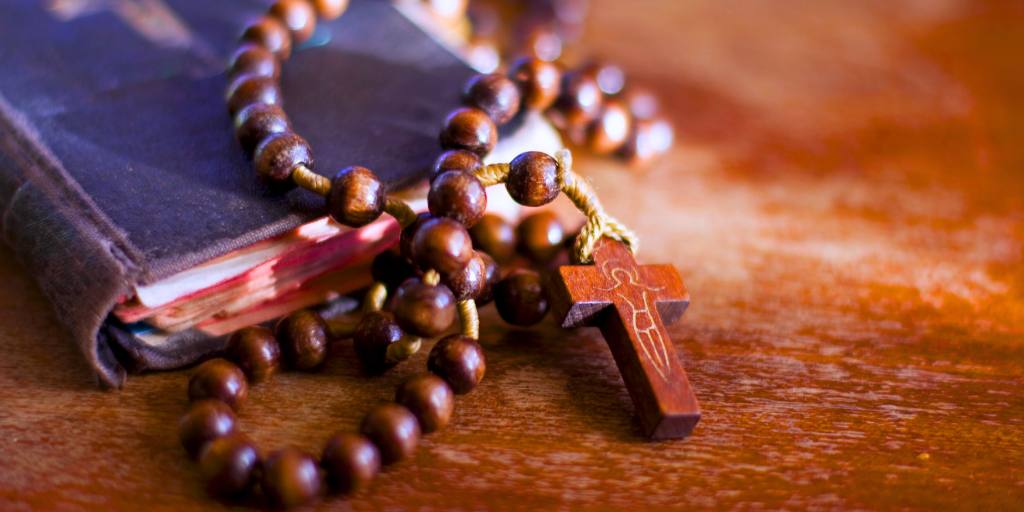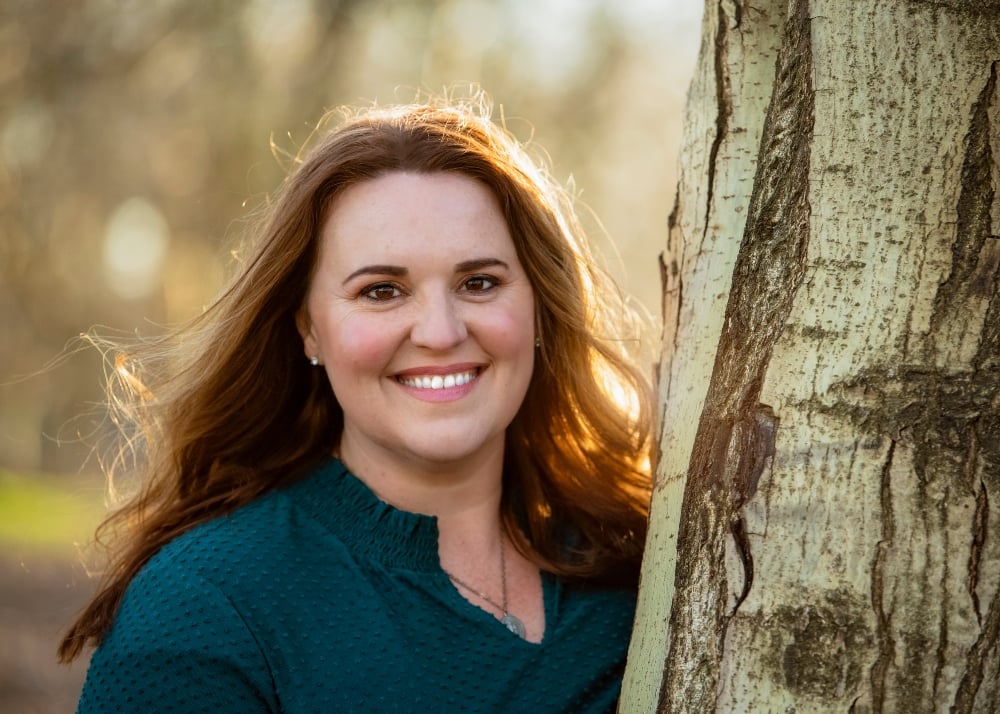
Andrea Bear shares her experience at a funeral she attended that changed the way she viewed our transition home.
Recently I attended a Rosary service for my former boss Gary, who had passed away. He was the principal for the school I taught close to twenty years ago, where I began my teaching career. For two years Gary battled with Lou Gherig’s disease, a physically debilitating illness that strips one of the capacity to care for themselves. His family stood by him as he suffered greatly.
As I was sitting in the pews reciting Hail Marys, then listening to his friends and family describe his life and accomplishments, it was a surreal moment. At Rosaries or funerals after a person dies, we reflect on the life of the deceased, the kind of person they were, and the way they impacted the others around them. Attending this service rekindled how I still continue to look back on her legacy and the impression my mother left, as I had lost her only five years earlier.
The deacon did not only speak words of condolence for Gary's loved ones; he also shared about the role of death—a role that is often downplayed by the accomplishments of life. These are the words that struck me most: “Death is not just a transition, but a transformation.” As Catholics we know that our time here on earth is part of our journey, yet many easily forget that it’s not the end, but rather the beginning. We know that death provides the transition to heaven, purgatory, or hell, but the word "transformation" jumped out because the change is so profound.

At funerals, people expect to handle the passing of a loved one in two ways: noting the sadness of death and the happiness of life. While both are important, we don’t often look at the celebration of death or what is referred to as Memento Mori: a happy death. Gary was a devout Catholic, he attended Mass, and I would imagine that upon his death he sought out God so that he would return home to Him.
We also play a part of that transformation. Our prayers, and the Masses we have celebrated for our loved ones, can help in that transformation if they aren’t already in heaven.
The deacon reminded us that Gary was no longer in pain and no longer suffering; he would be forever youthful, he would run, dance, laugh. And if in heaven, he would be an intercessor for us. When we die, we are transformed, we make our real home, and become our true self which God intended for us when He brought His Son to earth to conquer death. We become transformed.
Today our Lord Jesus Christ ascended into heaven: let our hearts ascend with him. St. Augustine
More often death is approached with a finality. We want to eternalize our loved ones on earth but not eternalize them in heaven. I suppose that’s because we the living, haven’t reached the other side, so our understanding of death is limited—and rightfully so. But as the deacon pointed out, if we took more time to focus on death as a celebration instead of only a loss, we may view the celebration a little differently.
As a student graduates, we celebrate the accomplishments and the milestone of completing a class or a degree: the emphasis is finishing the race. A student is rewarded with a diploma or prize. Let us also look at death as the greatest accomplishment of carrying out what God has called us to do on earth; the achievement is to return home to Him in Heaven.

The deacon also referenced another story of a little boy who saw the coffin of his grandfather and remarked that it was a treasure chest. His mother affirmed, “Yes, it is. It most certainly is a treasure chest.” We are reunited with our treasures in heaven. God’s love for us is so immense that returning home must feel like the greatest prize.
I’m not saying that we cannot be saddened for transition of death, for it is “our” loss that we experience, and there is certainly a transition or adjustment without our loved one. Even Jesus wept over the death of Lazarus, but what we often miss in death is this is not God’s loss. This was His plan and now our true life can begin.
Share your thoughts below. How can we celebrate transforming rather than just transitioning?

Copyright 2023 Andrea Bear
Images: Canva
About the Author

Andrea Bear
Andrea Bear is a wife, mom, and teacher in Stockton, California. In addition to CatholicMom.com, she also writes for HerLife Magazine and Catholic Stand. She is the award-winning author of Catholic fiction, Grieving Daughters Club. When she's not writing or taking her kids to volleyball practice, you can find her sipping coffee from neighborhood coffee establishments or tasting wine from local vineyards. Visit AndreaBearAuthor.com.


.png?width=1806&height=731&name=CatholicMom_hcfm_logo1_pos_871c_2728c%20(002).png)
Comments